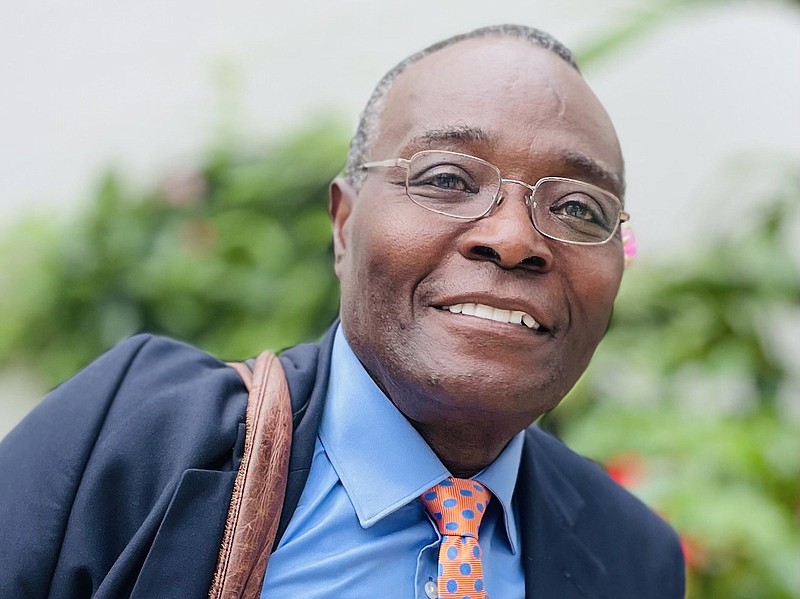God works, but he isn't a workaholic.
Asbury Seminary professor emeritus Anthony Headley emphasized that point during a seminar for ministers in North Little Rock last week.
After creating the world in six days, God rested on the seventh, according to the scriptural account. He also paused, throughout the week, to admire his creation, Headley noted.
The opening pages of Genesis, Headley said, offer "a basis, a biblical basis, for rethinking how we approach ministry."
Roughly 20 people attended the Reframe & Refresh workshop Oct. 6, which was designed to help preachers "practice holistic self-care."
Many participants were Methodist ministers and graduates of the Wilmore, Ky.-based seminary, which has extension sites in Memphis and Tulsa as well as online learning options.
Asbury, one of the nation's largest seminaries, is named after Francis Asbury, the founding bishop of the Methodist Episcopal Church in the United States, the precursor to today's United Methodist Church.
The English-born Asbury was no slacker. During his half-century of ministry, he traveled 270,000 miles -- mostly on horseback -- and preached 16,425 sermons.
Idleness did not appeal to him.
"My soul is more at rest from the tempter when I am busily employed," he noted in his journal on Jan. 29, 1780.
Ministers today sometimes struggle to find the proper work-life balance, Headley noted.
Jesus, he noted, alternated between public ministry and private prayer and contemplation.
In the gospels, "recall those many occasions where people are looking for Jesus and when they find him, he is out on a mountain somewhere by himself. You see, Jesus did not think that he always needed to be with people," Headley said.
In the New Testament accounts, "This whole pattern of retreat, followed by activity, is very evident," Headley said. "We don't always have to be grinding at the mill. There can be a pause that allows us to refresh."
Headley, a licensed psychologist, joined the Asbury faculty in 1990 and has taught courses on mental health counseling, marriage and family counseling and pastoral counseling.
Several in the audience had taken classes from him.
Clefton Vaughan, pastor of St. Paul United Methodist Church in Searcy and a 1999 Asbury graduate, said Headley's message was timely.
"In the last year with covid and all the stress that goes with that ... it is cause for a lot of pastors to get very tired -- physically, emotionally and spiritually," Vaughan said.
Headley helped to reframe the conversation "from not just ministering to others but allowing yourself to be ministered to," he said. "You allow God to bring you the strength that's needed and then you're enabled to give that grace to your family and to your congregation."
"It's a very stressful job. It's 24-7," said Margie Brown, St. Paul's youth ministry director. "You are called on constantly, from different people, all hours of the day and night."
It's essential for pastors to strike the right balance, said Daniel Kirkpatrick, pastor of First United Methodist Church in Nashville and an Asbury alumnus.
Otherwise, "You will burn out. You won't be effective," he said.
Many ministers were struggling with anxiety and depression prior to covid-19, Headley said.
"I think those rates have escalated during the pandemic," he added.
"If you want to flourish in ministry, you need to refresh by taking care of yourself, taking care of your family, guarding your mental health, finding social support and, intentionally, engaging in your own self care," he said.

